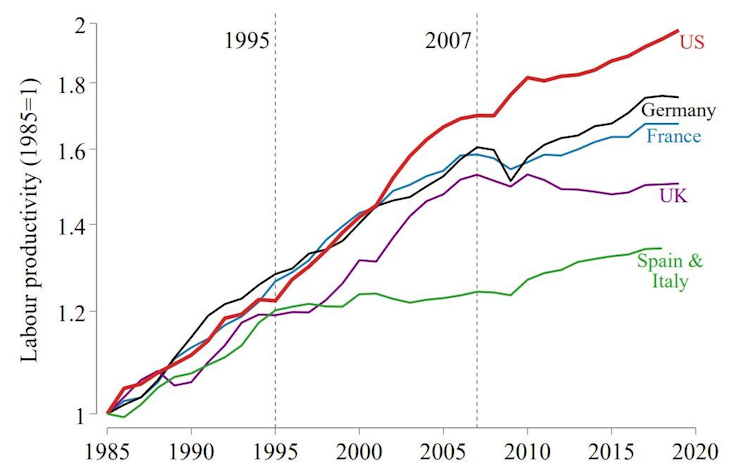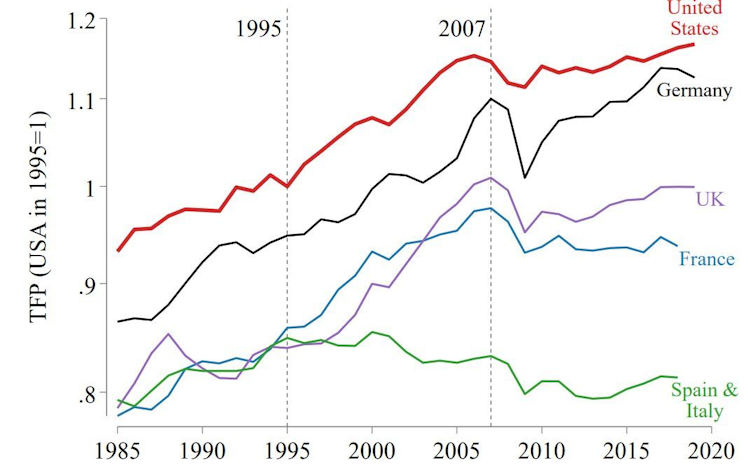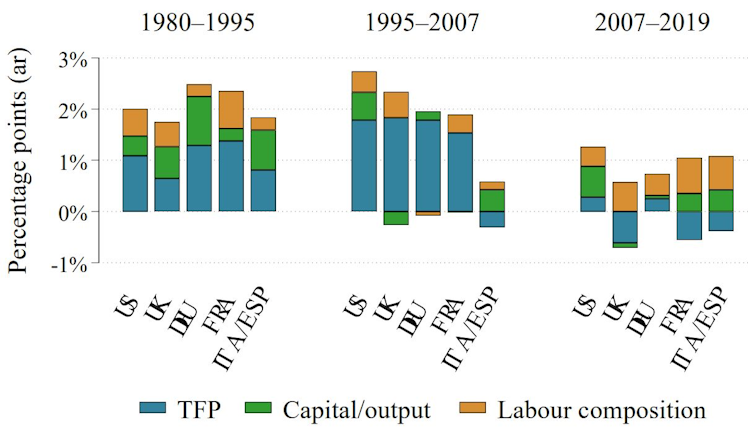Trending Assets
Top investors this month
Trending Assets
Top investors this month
The labour productivity debate
Came across an interesting piece on labour productivity in developed western countries this week. (by Joachim Klement)
If you look at the growth in labour productivity, the U.S, unsurprisingly, has trounced the rest in the sample by some distance since 2000. The UK has had a declining labour productivity since the GFC, much worse than Southern Europe.

This is where the "work-ethic", "lazy labour", "culture" related arguments start pouring in during a conversation around the topic.
However, if you strip out population growth and capital investments, and only look at total factor productivity (TFP), another picture starts to emerge. The U.S, UK and Germany have seen some growth in TFP since 2000, France is almost flat, whereas Spain and Italy have seen a declining TFP since 2000, which has only picked up slightly since 2015.

Finally, when you stack up all these components to look at the contribution to GDP growth for these countries:
The U.S has had a +ve contribution from the three components (TFP, population growth/labour composition and capital investments) in all periods analysed, whereas the UK has barely seen any capital related GDP growth (which are driven govt. and private investments in the country) since 2000. Southern Europe has a TFP problem which it has failed to solve.

Looking at GDP growth through this lens makes things interesting, especially in the wake of our changing relationship with work and the emergence of TFP impacting tech like AI/Gen AI.
Already have an account?